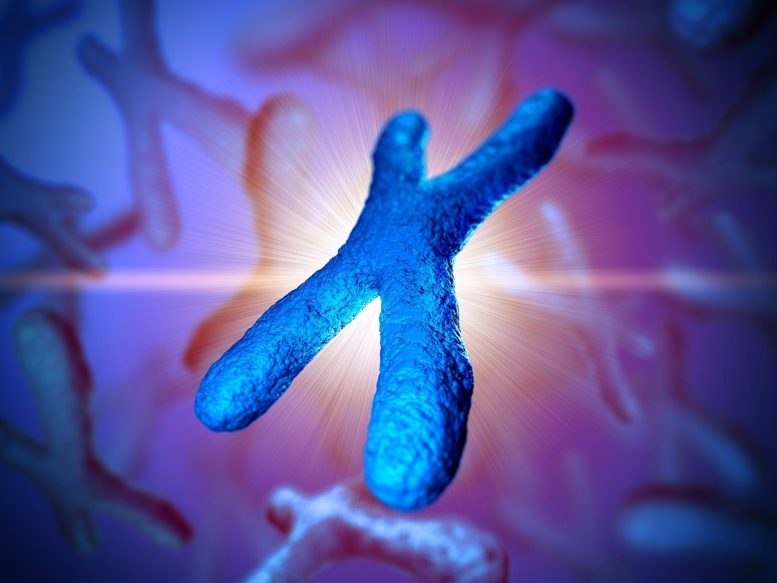
UC San Diego researchers found that the chromosomal microdeletion 22q11.2del significantly increases the risk of spina bifida, identifying the CRKL gene as a key factor. They also highlighted the role of folic acid in reducing the risk and severity of the disorder.
Researchers from UC San Diego School of Medicine identify a chromosomal microdeletion and suggest that a common vitamin might help prevent the condition.
Researchers at the University of California San Diego School of Medicine have conducted an investigation that provides new insights into the causes of spina bifida, the most common structural disorder of the human nervous system.
Work of the group, led by Keng Ioi Vong, Ph.D., and Sangmoon Lee, M.D. Ph.D., both from the laboratory of Joseph G. Gleeson, M.D., at the UC San Diego School of Medicine Department of Neurosciences and the Rady Children’s Institute for Genomic Medicine, reveals the first link between spina bifida and a common chromosomal microdeletion in humans. The study demonstrates that individuals carrying this chromosomal deletion —present in one of 2,500 live births — demonstrate a risk of spina bifida more than 10 times greater than the general public.
The study also underscores the potential role of a common food supplement in reducing the risk of spina bifida. The findings were recently published in the journal Science.
The Role of Chromosomal Deletions
Gleeson, Rady Professor in the Department of Neuroscience and director of neuroscience at Rady Children’s Institute for Genomic Medicine, is the senior author of the study. He explained that spina bifida, also known as meningomyelocele, affects one in every 3,000 newborns. Unfortunately, the causes are mostly unknown. A few mutations were reported but could only explain a tiny fraction of risk, Gleeson added.
To uncover the genetic causes of the disease, Gleeson’s UC San Diego lab joined with colleagues from across the globe to establish the Spina Bifida Sequencing Consortium in 2015. The consortium began focusing on a tiny deletion in chromosome 22. Chromosome microdeletions refer to a condition in which several genes in a chromosome are missing. The group’s target condition, known as 22q11.2del, has been implicated in a number of other disorders. They began looking for 22q11.2del in spinal bifida patients.
“All patients we recruited have the most severe form of spina bifida, and all underwent best-practice comprehensive genomic sequencing,” Gleeson said. “We identified 22q11.2del in 6 out of 715 patients. This may not seem a high percentage, but this is by far the most common single genetic variation that could contribute to spina bifida.”

Co-authors on a paper in the journal Science reporting a link between a chromosomal microdeletion and spina bifida include (from left) Joseph Gleeson and Keng Ioi “Harry” Vong, both of the UC San Diego School of Medicine Department of Neurosciences and the Rady Children’s Institute for Genomic Medicine. Credit: UC San Diego Health Sciences
He went on to say the group identified eight additional spina bifida patients who carried the deletion from a cohort of approximately 1,500 individuals recruited because of the presence of the common 22q11.2 deletion, Gleeson said.
The researchers then narrowed the cause among the many genes in the 22q11.2 deletion to a single gene known as CRKL. Gleeson explained that there are nine other genes in this chromosomal region that could have been the cause. He said the team began a process of elimination, “knocking out” each of the mouse genes one by one, when they received a fortuitous email from Dolores Lamb from Weil Cornell College of Medicine. Lamb had noted some of the mice in their vivarium that were missing Crkl and showed spina bifida. (Vong explained that researchers use all capital letters to describe the gene in humans, and lower-case for mice.) Lamb’s group heard about the Gleeson lab project through the Spina Bifida Association.
“This finding really got us excited because it meant that CRKL disruption might be sufficient for spina bifida,” said Vong, co-first author of the study. “We removed the mouse Crkl gene ourselves and confirmed that some of the mice developed neural tube defects, including spina bifida.” Most of the other genes in 22q11.2 deletion were subsequently excluded, he added.
The Role of Folic Acid
They next turned their attention to how folic acid may modulate CRKL-mediated spina bifida. Vong noted that prior studies in humans demonstrated that folic acid (also known as vitamin B-9) supplementation prior to conception reduces the incidence of spina bifida and other neural tube defects by up to 30-50 percent, but the mechanisms are still a mystery.
“When we deprived the Crkl mutant female mice of folic acid in their chow, many more of their offspring had neural tube defects, and the severity increased dramatically,” Vong explained. “This suggests that folic acid taken by pregnant women may not only reduce the risk, but also the severity of neural tube defects in their offspring.”
“We hope our findings can help the research community to better understand causes of neural tube defects, especially the causes attributable to common genetic findings like 22q11.2 deletion,” Gleeson said. “We also hope our findings can contribute to healthy pregnancies, improved women’s health, and improved outcomes for children.”
Reference: “Risk of meningomyelocele mediated by the common 22q11.2 deletion” by Keng Ioi Vong, Sangmoon Lee, Kit Sing Au, T. Blaine Crowley, Valeria Capra, Jeremiah Martino, Meade Haller, Camila Araújo, Hélio R. Machado, Renee George, Bryn Gerding, Kiely N. James, Valentina Stanley, Nan Jiang, Kameron Alu, Naomi Meave, Anna S. Nidhiry, Fiza Jiwani, Isaac Tang, Ashna Nisal, Ishani Jhamb, Arzoo Patel, Aakash Patel, Jennifer McEvoy-Venneri, Chelsea Barrows, Celina Shen, Yoo-Jin Ha, Robyn Howarth, Madison Strain, Allison Elizabeth Ashley-Koch, Matloob Azam, Sara Mumtaz, Gyang Markus Bot, Richard H. Finnell, Zoha Kibar, Ahmed I. Marwan, Gia Melikishvili, Hal S. Meltzer, Osvaldo M. Mutchinick, David A. Stevenson, Henry J. Mroczkowski, Betsy Ostrander, Erica Schindewolf, Julie Moldenhauer, Elaine H. Zackai, Beverly S. Emanuel, Sixto Garcia-Minaur, Beata A. Nowakowska, Roger E. Stevenson, Maha S. Zaki, Hope Northrup, Hanna K. McNamara, Kimberly A. Aldinger, Ian G. Phelps, Mei Deng, Ian A. Glass, Spina Bifida Sequencing Consortium‡, Bernice Morrow, Donna M. McDonald-McGinn, Simone Sanna-Cherchi, Dolores J. Lamb and Joseph G. Gleeson, 2 May 2024, Science.
DOI: 10.1126/science.adl1624
Co-authors associated with the University of San Diego School of Medicine Department of Neurosciences, as well as with Rady Children’s Institute for Genomic Medicine, (in addition to Joseph G. Gleeson Sangmoon Lee, and Keng Ioi Vong) are: Renee George, Bryn Gerding, Kiely N. James, Valentina Stanley, Nan Jiang, Kameron Alu, Naomi Meave, Fiza Jiwani, Isaac Tang, Ashna Nisal, Ishani Jhamb, Arzoo Patel, Aakash Patel, Jennifer McEvoy-Venneri, Chelsea Barrows, Celina Shen, Yoo-Jin Ha, and Robyn Howarth. Other co-authors include Hal S. Meltzer, of the University of California San Diego Rady Children’s Hospital Department of Neurosurgery; Anna S. Nidhiry, of Rady Children’s Institute for Genomic Medicine; and the Spina Bifida Sequencing Consortium.
This work was supported by the Center for Inherited Disease Research grant HHSN268201700006I, the Yale Center for Genomic Analysis, the Broad Institute, the UC Irvine Genomics Core, the UCSD Institute for Genomic Medicine, the UCSD Transgenic Core, UCSD Microscopy Core grant P30 NS047101, and Columbia Microscopy Core grant S10 OD032447- 01. Other support came from the National Institutes of Health, including National Institute of Diabetes and Digestive and Kidney Diseases, and by support from the Howard Hughes Medical Institute and Rady’s Children Institute for Genomic Medicine to Joseph G. Gleeson.









This article discusses folic acid, but the paper has no mention of folic acid. Folate is not folic acid.
Thanks for checking the paper Aric! I see they’ve paywalled most of it.
Folate isn’t folic acid, totally true. Most peoples’ bodies can synthesize folate from folic acid, so foods are fortified with it, and pregnancy vitamins include folic acid. Recently I’ve seen a trend of instead supplementing with methylfolate (5-MTHF), a more-direct form of folate in case of a MTHFR gene mutation inhibiting folate production. It remains controversial (the CDC opposes it FWIW), and I’ve watched the cost of some methylfolate supplements double.
This study appears to have found another genetic mutation that increases risk. That might reinforce the folic acid supplementation advice, or other forms of folate. Testing for folate levels might also be the better answer. It’s hard to know what worth or advice the study has due to the paywall, especially when the article uses the wrong chemical name for the headline’s “Simple Vitamin”, which isn’t simple at all.